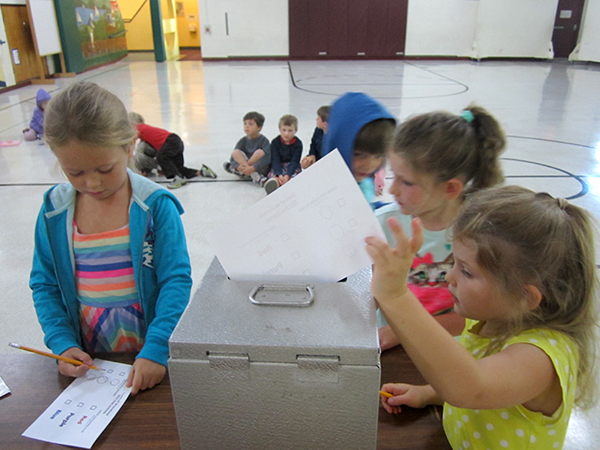Conflicting laws within the state of Vermont are causing issues for the Washington West Supervisory Union.
The first, Act 166, is currently being implemented throughout Vermont which mandates that universal pre-K be available for all 3- and 4-year-olds. The second, Title 16, Section 255, requires supervisory unions to screen and background check any educator who may be with children from the supervisory union.
Universal pre-k will work as a voucher system, allowing parents to choose private providers anywhere in the state. Currently, there are students at 14 additional providers outside of the supervisory union. This could become an annual issue because next year there might be a new set of additional providers, said Brigid Sheffert Nease, superintendent of schools for Washington West Supervisory Union.
If all children were served universal pre-K at schools within the Washington West Supervisory Union there would not be a problem, she explained.
The conflicting laws will now “cost taxpayers more money at a time when we need to be cutting the costs of public education as a whole in this state,” Sheffert Nease said.
Vermont’s Agency of Education has said that pre-K should just be considered as another grade, but the licensing and supervision has been put in the hands of the Agency of Human Services, which operates under a different set of laws.
The largest issue is the fingerprinting and background checking of pre-K providers. The “Agency of Human Services did not get all pre-K employees fingerprinted by the start of the school year. By law, I cannot allow any individual to have access to children without a complete national and state search,” Sheffert Nease said.
“As a result, none of the contracts we have with private providers are valid until I can receive these fingerprinting clearances. Because of the backlog, this could easily be the end of October. If the contracts are not valid, then I cannot pay the providers. This means that technically we are not serving these students from the start of school, even if they are attending. This could interfere with our legal October count for students, which drives our state funding,” Sheffert Nease explained.
Providers that have not been screened are still in service and children are attending schools; the issue lies within the contracts they have with the supervisory union.
Before school started, Sheffert Nease sent a letter to all parents and private providers explaining these issues.
The child development division expects the background checks to be completed by the end of September.
Another issue that has been caused is the additional work for the supervisory union administration. Transition plans will have to be put in place for out-of-district students when they return to their towns’ schools and the providers may change from year to year.
“The implementation of Act 166 and universal pre-K is fraught with conflicts in the law, issues around discrimination for students needing special education services or living in poverty and confusion around roles and responsibilities. There has been virtually no guidance from the governor's office, right on down through the Agency of Education and the Agency of Human Services. This is the best example of a well-intentioned law that resulted in unintended negative consequences that I have seen in many, many years,” Sheffert Nease said.






